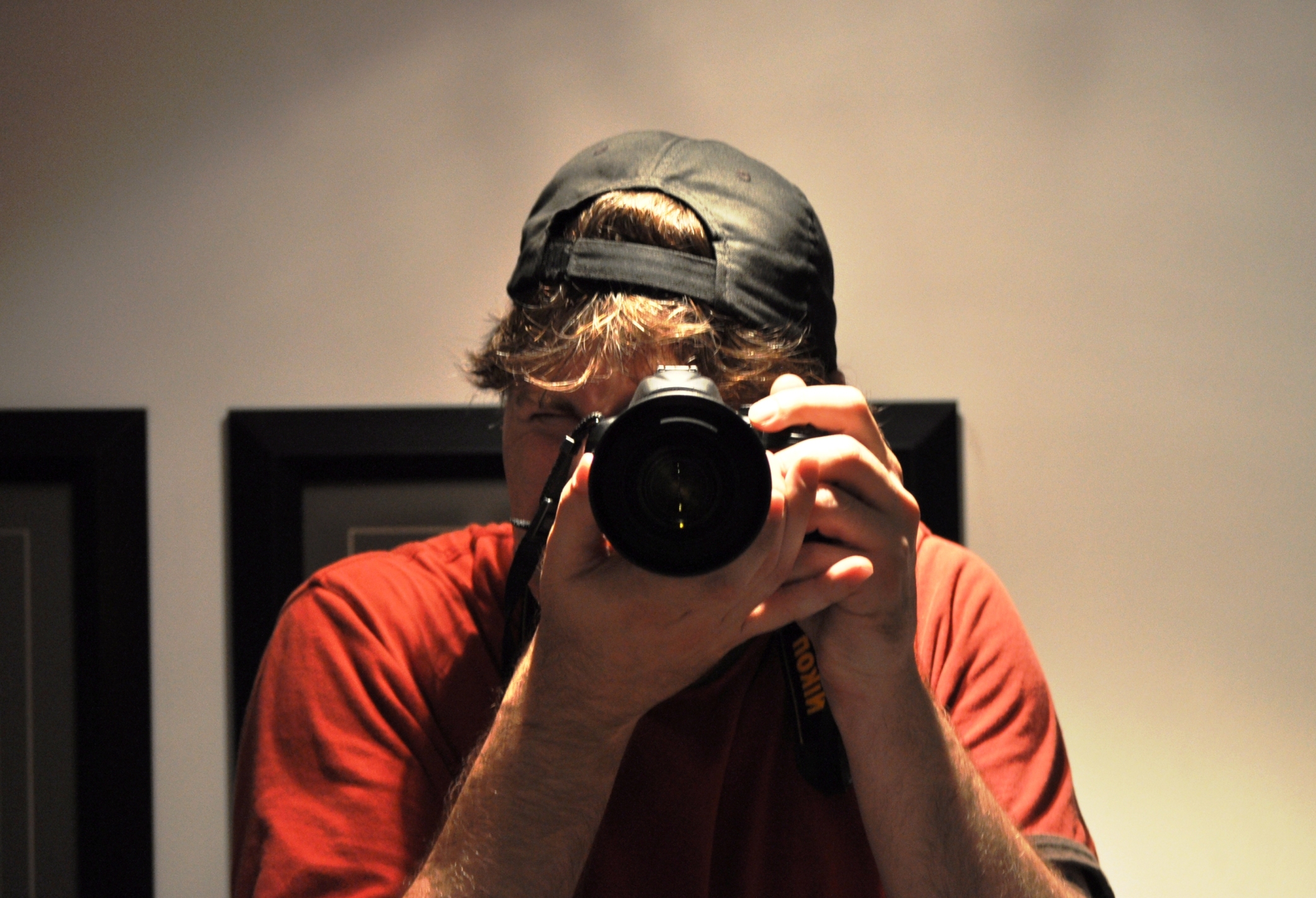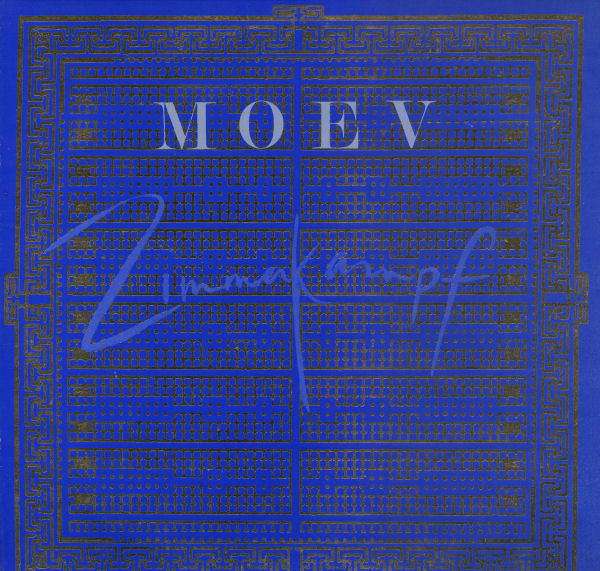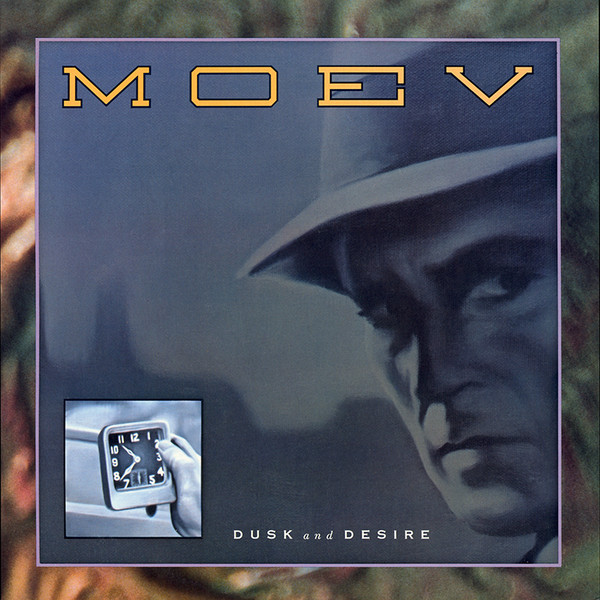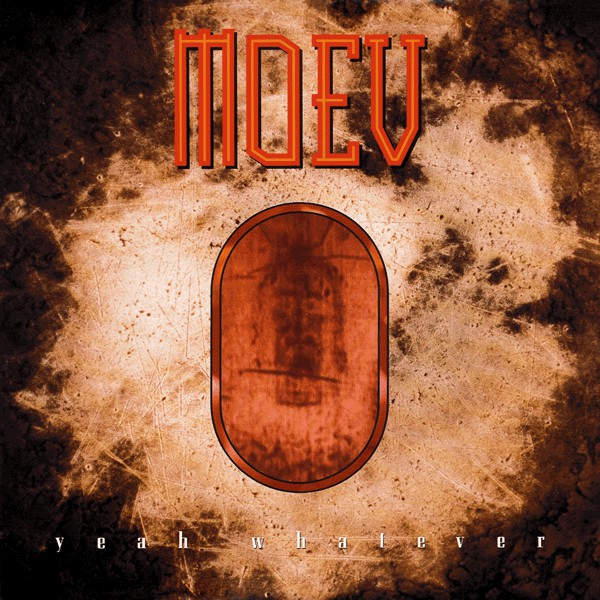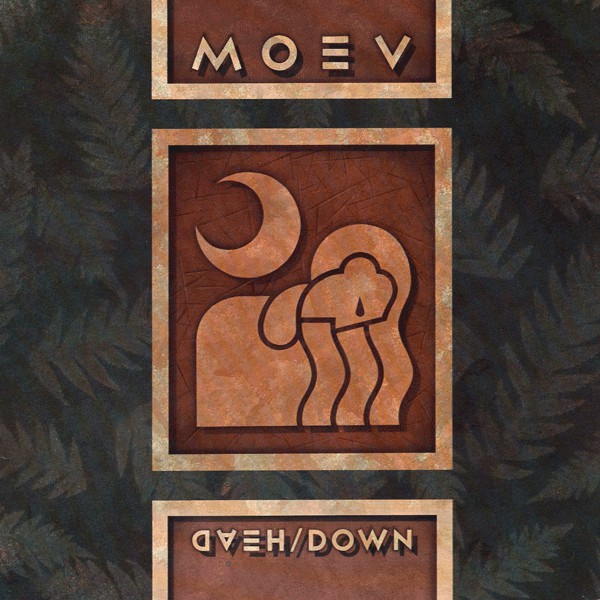Dusk and Desire: A Retrospective of MOEV
Click below on the streaming service of your choice to listen to the playlist as you read along.
Throughout the 1980s there was a proliferation of electronic bands. As synthesizers and electronics grew more accessible, new acts could produce complete songs with just a few people. In Canada it was no different and one of the country’s better acts in this genre was MOEV. An act that moved through different phases over a ten year career, a constantly changing line-up resulted in various sounds and styles though always rooted in an electro-dance sound.
They were formed in 1981 in Vancouver by Tom Ferris and Cal Stephenson. They were soon joined by vocalist Madeleine Morris and guitarist Mark Jowett and issued their first single that year, “Cracked Mirror,” on San Francisco based Go! Records. I can’t find any explanation for the band’s name but given its closeness to ‘move,’ wonder if it’s a play on that word.
The band’s photos from the back jacket of the single, “Rotting Geraniums”: Cal Stephenson, Mark Jowett, Madeleine Morris, and Tom Ferris
The band’s first album, Zimmerkampf, was released the following year and was very representative of the dark pop-synth of the time, fashioned of a blend of the darker UK synth acts such as New Order, Depeche Mode, Ultravox, and Cabaret Voltaire. A female lead vocal linked them sonically to the likes of The Human League and other acts that would soon follow, such as Germany’s Propaganda. There were decent melodies mixed with beats and rhythms and atmospheric, extended passages. The guitar work on the single, “Rotting Geraniums,” was very new wave and put the band at the cutting of that day’s modern sounds. Despite the album being quite good in a period of rapidly expanding interest in new wave synth music, it didn’t sell well.
The next line-up, clockwise: Tom Ferris, Cal Stephenson, Mark Jowett, Michella Arrichiello.
Mark Jowett helped form Canadian based label Nettwerk Records in 1984 to distribute MOEV’s music (and the same year, that of Skinny Puppy and Grapes of Wrath) and would go on to become one of the most important modern rock indie labels in the world and remain the home for MOEV thereafter. The band also changed its female lead from Morris to Michella Arrichiello. Benefitting from the song writing contributions of their new singer, the first single with the new line up and label was “Alibis,” a landmark of the time and one of the most played songs on my favourite radio station in Toronto, CFNY. It was an impeccable mix of dark synth-pop and dance beats, picking up an early industrial feel with the sinisterly spoken male lyrics that also included backing vocals from Christine Jones.
In 1985 they recorded their next album and had Kelly Cook join on bass. The album, Dusk and Desire, was released in 1986 and was less melodic and more beat oriented. Like much of the synth music of the time, I found it less engaging and the electronics cold and off-putting. The album included “Alibis,” to its benefit, because otherwise there wasn’t much else to warm up to. I’m sure fans of this sound appreciate it more and the single, “Took Out the Lace,” did ok in clubs.
Once again there would be line-up changes as co-founder Cal Stephenson left along with Jowett and Arrichiello, leaving just founder Tom Ferris and Kelly Cook. They were then joined by Dean Russell and Anthony Valchic and the new line-up issued a new single in 1987, “Wanting,” a pre-cursor to the new album in 1988, Yeah,Whatever. The title track from the album and next single would be the breakthrough the prior line-ups had failed to achieve. It was a song that garnered a broader audience, greater radio airplay, and their first chart exposure, reaching #32 in the US Dance chart. The follow-up single from the album, “Crucify Me,” would almost do as well reaching #38. While “Yeah, Whatever” was a solid song with a great groove, I still found the album lacking in warmth and hooks, being more of a disjointed collection of electro-beats. It was a bit darker, hinting at the neo-industrial sound they’d approached with “Alibis,” but most tracks failed to find that song’s catchy essence. It was of a part of the dark period for modern rock in the late ‘80s that produced a lot of sub-par music. It was also a time when guitar was re-asserting itself over synths, leaving acts like MOEV part of a dying breed.
The next (and almost final) line-up: Kelly Cook, Dean Russell, and Tom Ferris
So it was refreshing and surprising when the band released their best album in 1990, Head Down. Now a trio of Ferris, Cook, and Russell after the departure of Valchic, the album was full of many catchy, darkly tinged synth-pop songs and seemed to be the distillation of what they’d been circling for the past few albums. The lead track, “In & Out” brought solid electro-pop vibes along a lovely, mid-tempo melody, and was followed by another, “Sadistic Years.” The band hadn’t delivered a two-song punch on an album since their start. Later on the album was “Fear,” a throwback new wave, synth track that brought a modern, alternative edge to it, and then the title track, “Head Down,” which similar to the first two tracks blended a mid-tempo, angry edge to a great pop melody industrial-flavoured synth-bass-drums rhythm.
The band’s musical achievement was likely driven by Dean Russell, who had taken over the lead song writing and vocal duties, which was why the band had lost the female presence in their sound, though backing female vocals were included by none other than fellow Nettwerk labelmate, Sarah McLachlan. Yet despite the quality of the album it was still a step out of time with the growing grunge sound. While the electronics could have given them a foothold in the growing electro-industrial genre led by Nine Inch Nails, the new MOEV sound was too pop and watered down for that fit.
Russell passed away in 1994 from AIDS, and MOEV was disbanded. Ferris would go on to form the act Econoline Crush, who had hits similar to MOEV’s sound in the ‘90s. He and his wife, Julie Ferris, released a single in 1998, “Suffer,” under the MOEV name. It was very dance oriented and pure electronics. No further new releases have been seen other than compilations and re-releases.
Canadians attuned to new wave and alternative music in the 1980s and early ‘90s would know songs like “Alibis,” “Yeah, Whatever,” and “Head Down,” but otherwise MOEV was a band that was largely overlooked. A constantly changing line-up that switched their principal songwriters, vocalists, and sounds didn’t help the band with growth and consistency and hindered the build-up of a core audience that would have found much to like throughout their releases. MOEV was at the forefront of the alt-new wave and dark-pop sounds of the early ‘80s, but by the time they found their groove they were the wrong sound at the wrong time and were left as one of many fleeting, near-misses in first decades of modern rock.
The Playlist - song \ album (year)
Cracked Mirror \ non-album single (1981)
In Your Head \ Zimmerkampf (1982)
Rotting Geraniums \ Zimmerkampf (1982)
90 Minutes \ Zimmerkampf (1982)
Alibis \ non-album single (1984)
Took Out the Lace \ Dusk and Desire (1986)
Photos \ Dusk and Desire (1986)
Wanting \ Yeah, Whatever (1987)
Yeah, Whatever \ Yeah, Whatever (1988)
In & Out \ Head Down (1990)
Sadistic Years \ Head Down (1990)
Fear \ Head Down (1990)
Head Down \ Head Down (1990)
Suffer \ Suffer EP (1998)
